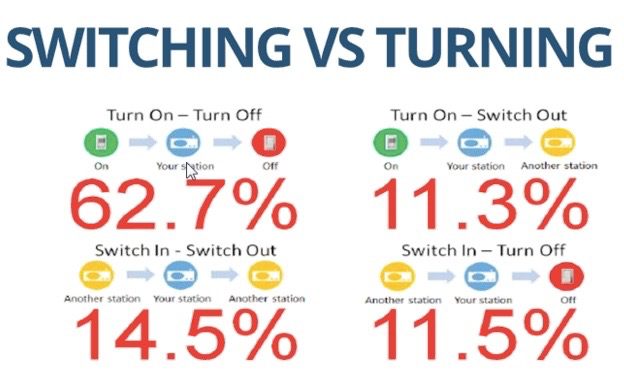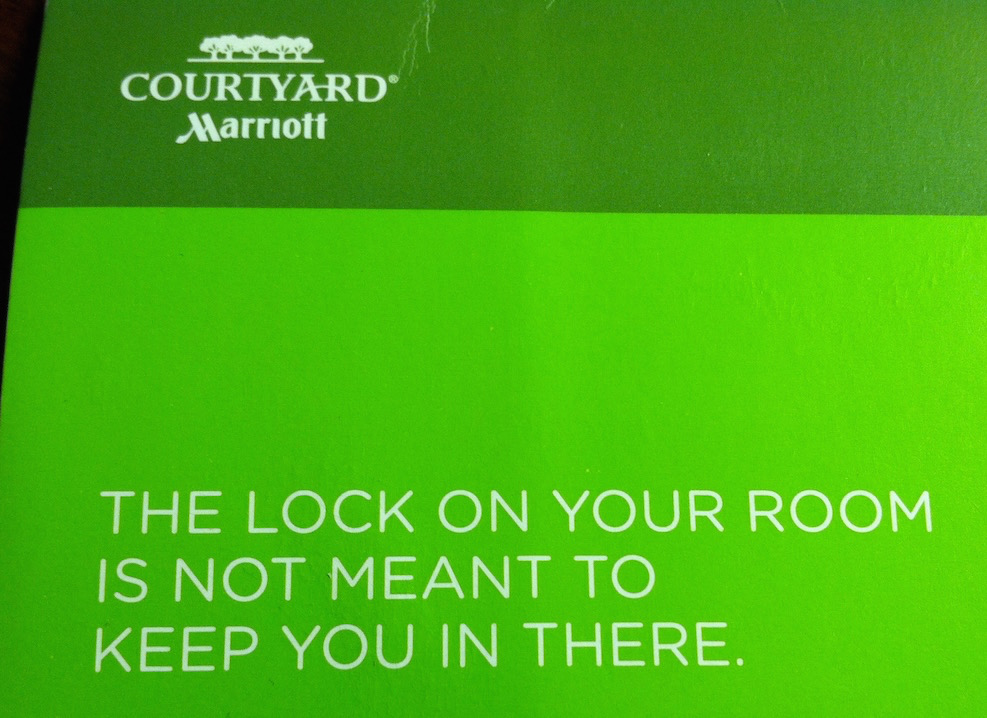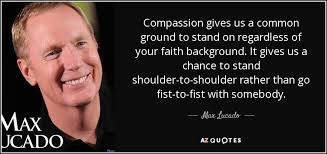The “leaky bucket.”
That’s PPM-talk for stations losing listeners by tuning away or turning the radio off. The traditional thought is that it is easier to keep listeners than to get them back. And darn logical that is, no doubt!
But that’s only half the story. Or, should I say, one third.
A recent study of 37 million listening occasions conducted by Coleman Insights and Media Monitors found that
“nearly two-thirds of radio listening occasions are the result of turning on the radio, listening to a station and turning the radio off.”
That means we as managers, programmers, and talent need to focus not only on minimizing tune-outs, but in creating TUNE INs, or what Mark Ramsey refers to as “winning moments”!
“A great morning show isn’t the show that holds listeners longer, it’s the show that has the winning moments that compel listeners to come back later or tomorrow.
A great radio station isn’t simply the one with the fewest tune-outs, it’s the one with the turn-ons listeners want to experience again and again – the moments that remind you to come back and listen again for more moments just like them.”
-Mark Ramsey
Perhaps the best example is the Super Bowl, or should I say the Super Bowl commercials!
Just for the heck of it I googled “best Super Bowl commercials” and got 50,900,000 results. That’s over 50 million web hits for reasons to TUNE IN!

The very thing that most consider a tune out – commercials – has been transformed into a huge TUNE IN because of creativity, investment, and talent.
Here’s another way to look at it:
Consider a highlight reel of the listening occasions on your radio station in which people simply didn’t tune away. It wouldn’t be a highlight reel at all. It would be a compilation of the bare minimum necessary to keep people from tuning out. You and I both know of stations designed with nothing more in mind.
But programming that simply avoids the “leaky bucket” doesn’t drive emotions, build relationships, inspire loyalty, or add value to someone’s life. That’s why superb talents like Wally, Brant Hansen, Lisa Williams, Keith Stevens, Beth Bacall, Frank Reed, Rachelle Renee, Steve and Amy, Kevin and Taylor, and the remarkable storytelling of Keep The Faith are game-changers by creating TUNE IN, the very thing we appreciate about Super Bowl commercials.
50 years ago no one even thought of tuning to the Super Bowl for the commercials. But that all changed when some talented someones created something worth tuning in for.









